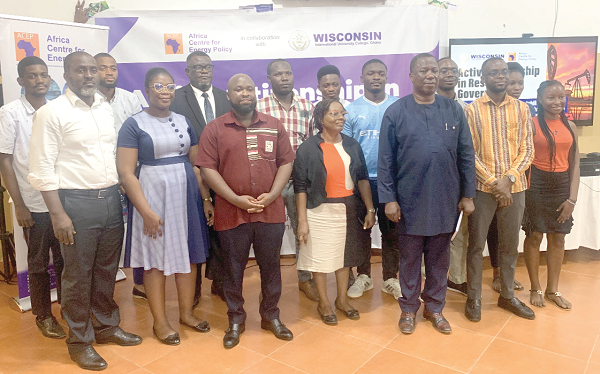
Engage in issues of national interest - ACEP urges youth
The African Centre for Energy Policy (ACEP) has urged the youth to develop interest in national policies and also engage in the governance of the country’s natural resources.
The centre said the youth could share their opinions and petitions through online portals to influence government actions, research, advocacy, project tracking, monitoring and reporting.
“The youth must interact with the system. They must advocate reforms and mobilise voices to cause change.
“For petroleum revenue that is expended on projects, young people can be active in monitoring and assessing the efficient delivery of the projects in their various localities,” ACEP added.
The Policy Lead for Petroleum and Conventional Energy at ACEP, Kodzo Yaotse, who gave the advice, said the centre had identified poor citizens oversight as one of the causes for the broken link between the country’s resources and development outcomes.
Event
Mr Yaotse was speaking during an engagement with students of Wisconsin International University College, Ghana (WIUC-Ghana), in Accra last Wednesday on the topic - ‘‘Active citizenship in resource governance’’.
The event was jointly organised by ACEP and WIUC and was aimed at enhancing students' awareness of resource revenue management and also empower them to actively monitor the government's utilisation of natural resource revenues.
It was on the theme: “Strengthening accountability in resource governance through active citizenship.”
Equitable resource distribution
Mr Yaotse also called for equitable distribution of natural resources to key sectors of the economy.
He said revenue from the extractive sector was intended to complement other sources of funding of key sectors.
“The observation we have noticed in the data is that as more natural resource revenues are allocated to a particular sector, the traditional government revenue that originally goes to those sectors keep reducing.
“So, instead of our resource revenue becoming a complementary source of funding to augment what those sectors can deliver, what we rather found out is that the funds that are available to them are actually reducing over the years,” Mr Yaotse added.
He said development outcomes and welfare of citizens would be affected negatively, if the trend continued.
Collaboration
The President of WIUC-Ghana, Prof. Obeng Mireku, said the collaboration between WIUC-Ghana and ACEP was a testament to their commitment to collective action and shared responsibility in the management of the country’s natural resources sustainably.
“Together, we can contribute to cultivate a culture of transparency and accountability in the field of natural resource governance for the betterment of our nation,” he said.
The Dean of the School of Business at WIUC-Ghana, Dr Bright Mawudor, said the government must focus on the people in processing and planning the management of natural resources to maximise their benefits.
